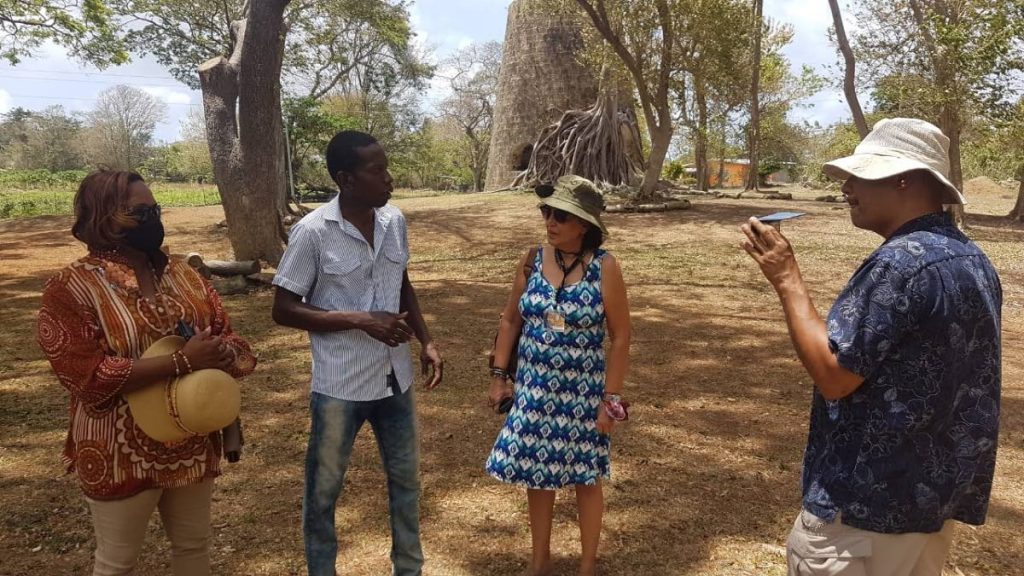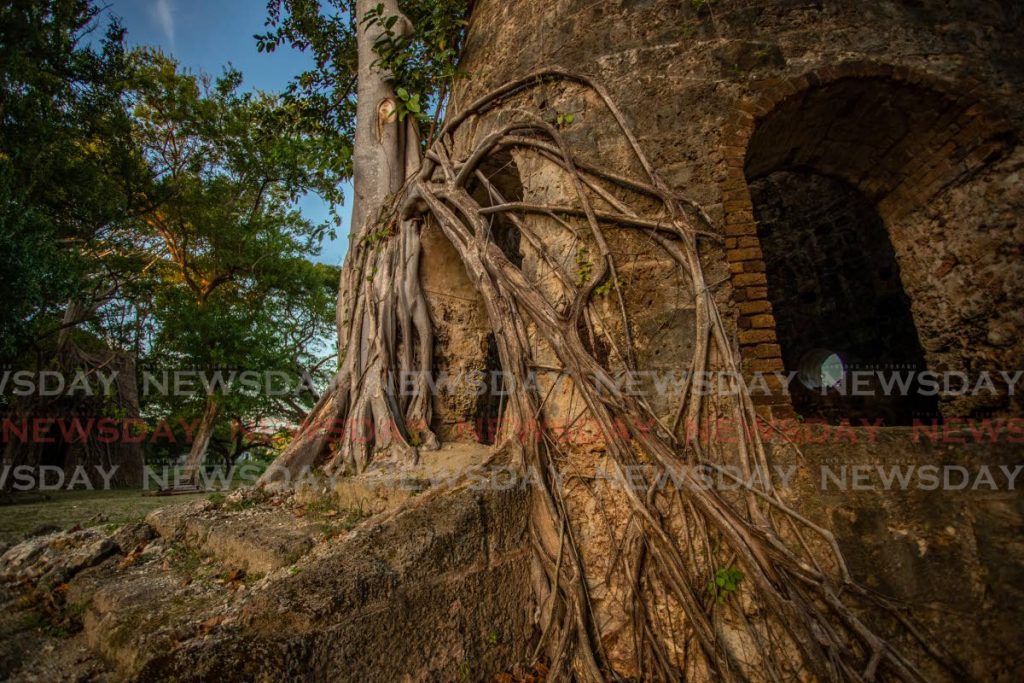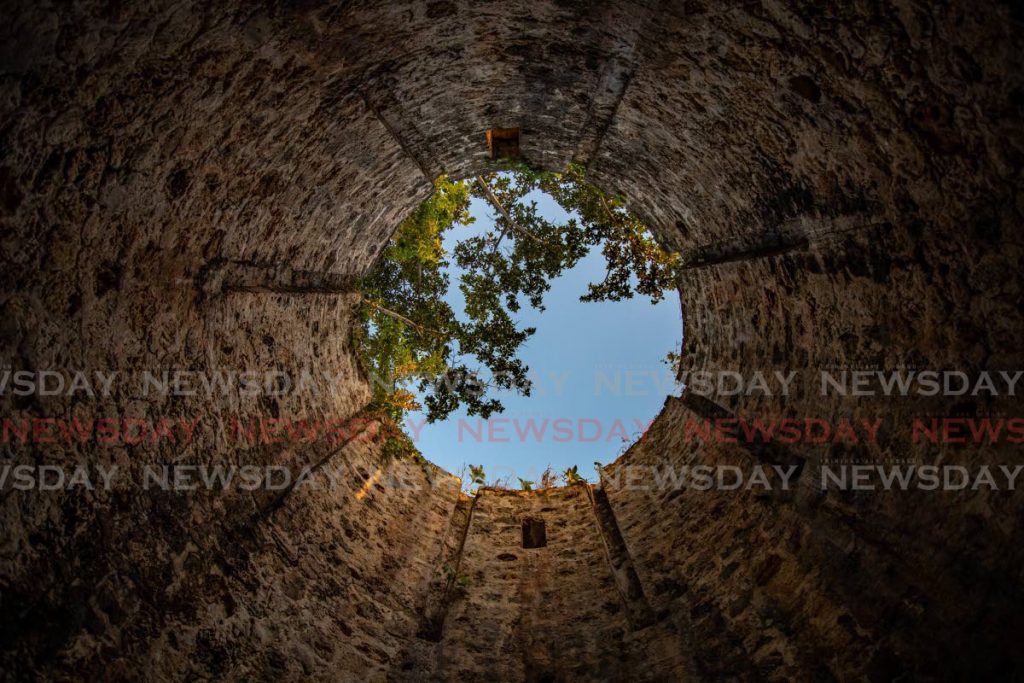Buccoo Historical Park: No longer Tobago's best-kept secret

UP UNTIL until 2019, the Buccoo Historical Park and Nature Centre was perhaps one of Tobago’s best kept secrets.
Situated at the corner of Golden Grove and Buccoo Roads, the well-manicured, 17-acre property is essentially an old sugar plantation, one of several on the island.
But through the sacrifice, dedication and vision of Lyndon Skeete and his family, the park has been one of the island’s major go-to destinations for weddings, birthdays, corporate functions, photo shoots, fundraisers and other events.
In fact, the sprawling estate was featured twice in this year’s Tobago House of Assembly (THA) calendar, securing its place among Tobago’s top tourist/recreational sites.

Skeete said the property has been divided into three sections. The park occupies six acres while the rest of the property is divided into areas for crop and animal farming.
He said the park, like other historic attractions on the island, has been impacted by the public health restrictions to contain the spread of covid19 over the past year.
“Because of the pandemic, there were a lot of cancellations. We had a lot of weddings lined but they were diverted and some people even put them off. One of the major things we had planned was a fashion show with well-known local designer Claudia Pegus,” he told Sunday Newsday.
Now that the economy is slowly reopening, Skeete believes the park will continue to attract tourists and locals alike.
“What we offer is much different from the usual sand and sea. Every island you go offers that. But the Buccoo Historical Park is a photographer’s dream and a lot of people tend to gravitate towards it from that standpoint.”
The focal point of the estate are the remnants of two, towering, cone-shaped windmill structures, which were used to generate the power to extract the juice from the sugar cane during the plantation era.
Skeete said the structures were made out of coral stone while its windows contained ballast stones, which were brought in from England. The estate also comprises an old sugar cane factory, a portion of which was later converted into a copra facility when the focus shifted to coconuts after the abolition of slavery.
On a far end of the property, visitors will also find the remnants of a well, which once supplied water for the domestic and commercial activities on the plantation.
Skeete said the well, which is partially covered in bush, has, for the most part, remained in its original form. He believes it is one of the best kept wells in Tobago.

He said his family intends to do all in their power to ensure the structures on the estate are rehabilitated and maintained.
Although the Buccoo Historical Park and Nature Centre was officially opened to the public in August 2019, Skeete told Sunday Newsday work on the site began about four years before.
Skeete, whose family lives obliquely opposite to the property, recalled his late father, Elkana Skeete, had planted crops and reared animals on the land for over 40 years. At one point his father owned 46 cows and 40 sheep.
Skeete admitted the family does not have a deed for the property but affidavits from the various landowners over the years.
“The estate itself is about 400 acres but we have occupied about 17 acres. My father was tending his animals on that portion of land for a long time but when the estate changed hands from its original owners to Clico, it was never contested it. By the time Clico acquired he property, my father also assisted them with other portions of the estate.”
But Skeete said it was not until his father passed away that the family truly appreciated the property and its historical significance.
“That is where I came on spot with other members of the family and, of course, with the knowledge now in terms of appreciating our history.”
Skeete recalled as children “the towers (windmill structures) were just objects that we played around.
“We did not get the full understanding of what actually took place here. But when we got a better understanding and appreciation for what took place, then we knew the value of it and so we decided that we must do something from an educational standpoint.”
Skeete said the family first sought the advice of noted historian Dr Rita Pemberton, whom he said, “walked through the bushes with us from time to time.”
He said Pemberton’s knowledge of the plantation era and the events which took place on that particular estate, more than a century ago, piqued his curiosity.
“As a result of that, I have become more intrigued by the estate and what the towers really meant at the time.”
Gathering as much funding as they could, Skeete said the family set out to not only preserve the structures but transform the area into a recreational space.
Soon after the project began, Skeete said he sent photos of the estate to a relative, who later showed them to a wedding planner.

The wedding planner, he recalled, asked if the site could have been used for a wedding.
“From that, we started moving from strength to strength. And although the park is still a work in progress, from 2019 to now, we have made a lot of strides.”
Through the park, which has a management board, Skeete said the family has established links with other local and international organisations specialising in the preservation of Tobago’s historic sites.
He added there are a number of sites like the park on the island that are still in ruins and need to be cleaned, maintained and preserved for future generations.
“People who do not know their past will not really appreciate and understand their future.”
The Buccoo Historical Park and Nature Centre is a member of the European Chamber of Commerce and the Angelo Bissessarsingh Virtual Museum of Trinidad & Tobago.
Conceptualising and managing the park, Skeete said, has taught his family a lot about slavery and the plantation era. But he observed people rarely welcome discussions about slavery and Africa.
“That, to me, is hiding from who we really are because when we get to understand the resilience of our forefathers went through, the kind of skillsets that they had, even back then, we are really a gifted people.”
The towers in the park, he said, are a telling example.
“The towers were not constructed by Europeans but they were the ones who benefitted from the slave labour. The skills were from our forefathers in terms of the majestic work they were able to do back then.”
Skeete believes that talent and can-do spirit has transcended throughout the generations.
“It has passed through our DNA that we as a Caribbean people can do anything once we put our minds to it. We have the potential to make quantum leaps.”
Although visitors are always mesmerised by the park’s offerings, Skeete said there is still much work to be done to make it a truly revered and unique tourist attraction.
He said the structural integrity of one of the towers is intact so plans are in the pipeline to reinstall a windmill.
“I have met with some of Europeans ambassadors, in collaboration with the Dutch Embassy, in terms of having a windmill to there so that folks could see how it used to work and appreciate what the plantation life was all about.”

But he said a tree with large, interlocking roots, is threatening the integrity of the other tower. They are consulting with experts to determine how best to rehabilitate the tower.
Aware of its vast potential, Skeete said the family intends to pursue various projects in the park.
In the short term, they plan to construct washroom facilities, a wedding hall and wooden cabanas “because we have a lot of individuals, both local and foreign who have come by and stated that they would like to stay here.”
The family also wants to host re-enactments of the slave plantation.
A heritage kitchen, highlighting African culinary treats and traditions, is on the drawing board in the long term.
“It will deal with all of the indigenous foods dating back to the era of slavery. We already prepare some of the meals and research will tell you that it came directly from what our ancestors ate. So, even from the food that we eat, we want to educate people from that standpoint.”
Skeete believes the project would benefit schools.
“A lot of school children may not know about dirt ovens so we could have schools coming in to see how to make these things so that we have a legacy that continues with us.”
The family also plans to upgrade a portion of the park for camping and picnics.

Comments
"Buccoo Historical Park: No longer Tobago’s best-kept secret"